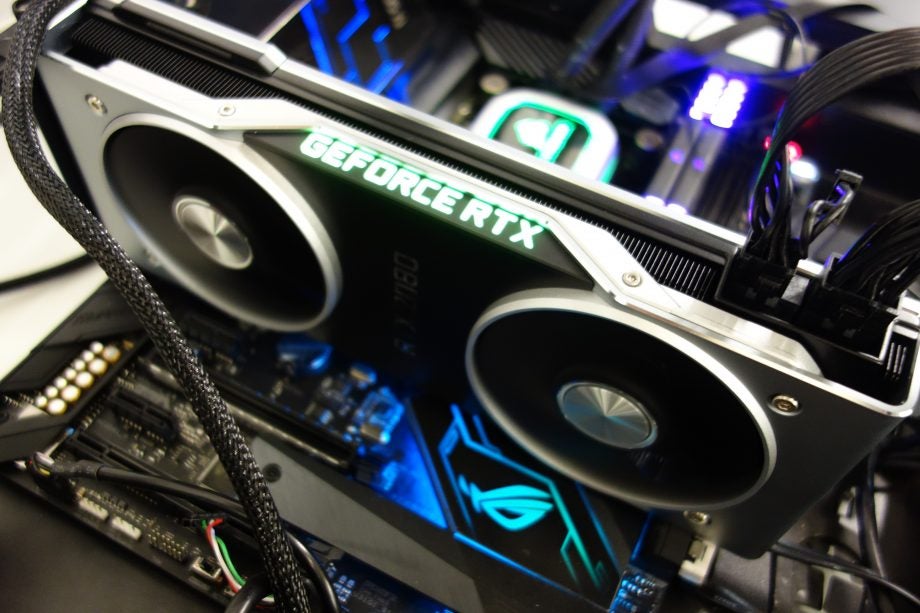Nvidia’s next-gen GPU will use Samsung’s 7nm node

Nvidia Korea has come forward to say that the company’s next-gen cards will be built on Samsung’s 7nm EUV node.
This won’t impact the launch of Nvidia’s RTS 2060 Super and GeForce RTX 2060 Super graphics cards, which are built on already existing 12nm tech, but does mean that the next generation of cards will use 7nm architecture.
It’s a big step. The shift to 7nm architecture means more silicon space and better power efficiency, and Samsung have claimed they want to be spinning up into full volume production in mid-2020.
Related: Best Gaming PC
This is important because Samsung has described Nvidia as a launch partner for their new 7nm node, meaning that we should expect to see new 7nm Nvidia cards in mid-2020. The rumour has them down as Nvidia Ampere cards, although that name hasn’t been confirmed.
Talking to Chiphell (thanks PCGamesN) Nvidia Korea’s Yoo Eung-Joon has said: “It is meaningful that Samsung Electronics’ 7nm process would be used in manufacturing our next-generation GPU. Until recently, Samsung has been working really hard to secure (partners) for foundry cooperation.”
Samsung and Nvidia have worked together before, on limited runs of specific graphics chips. Samsung worked on the GTX 1050, 1050 TI and GT 1030 cards, but generally Nvidia has worked with the world’s biggest chip manufacturer, TSMC, for its recent cards. However, Nvidia has mentioned that the production on the next-gen Samsung chips will be “substantial”, meaning there will probably be a full range produced through this partnership.
With Intel’s Xe graphics cards and AMD’s new Navi range all planning to emerge in 2020, it could be the most competitive we’ve seen the GPU market in a long time.


